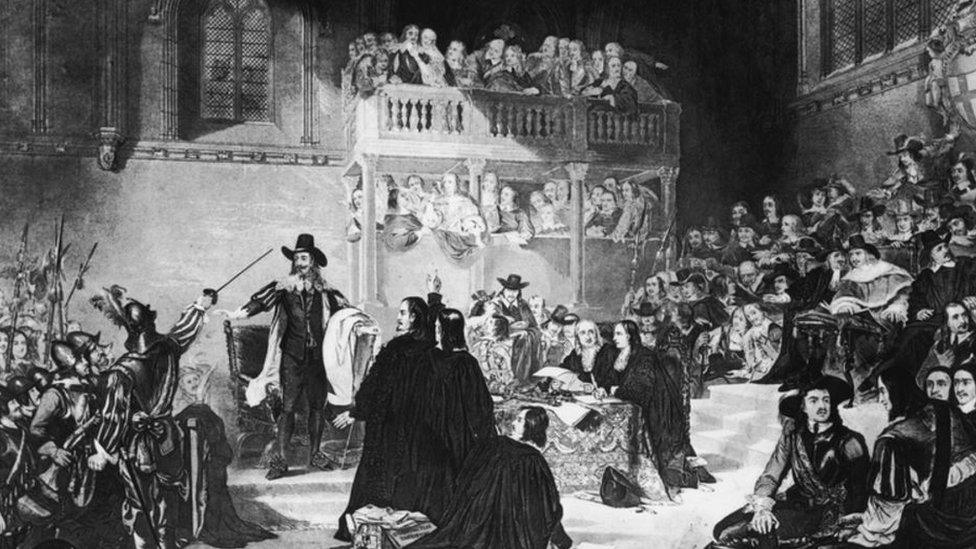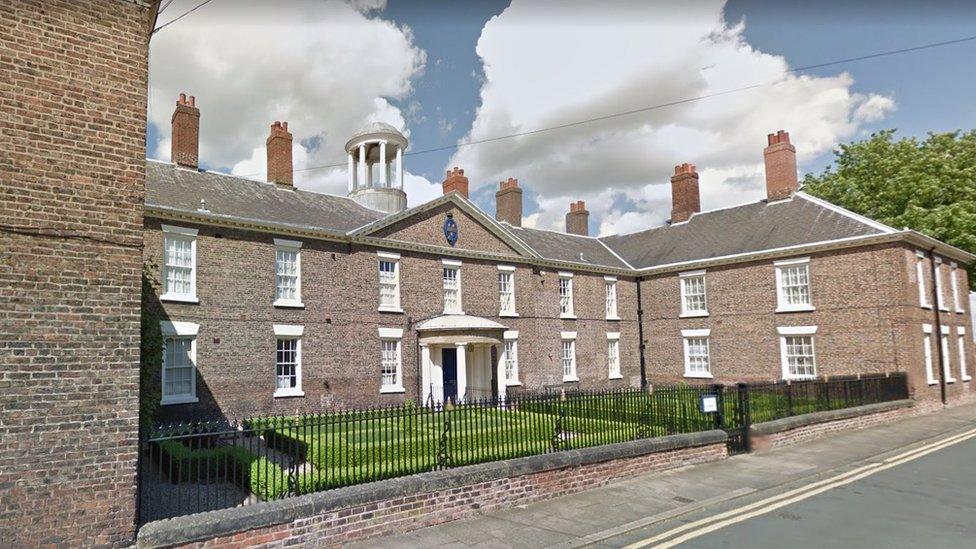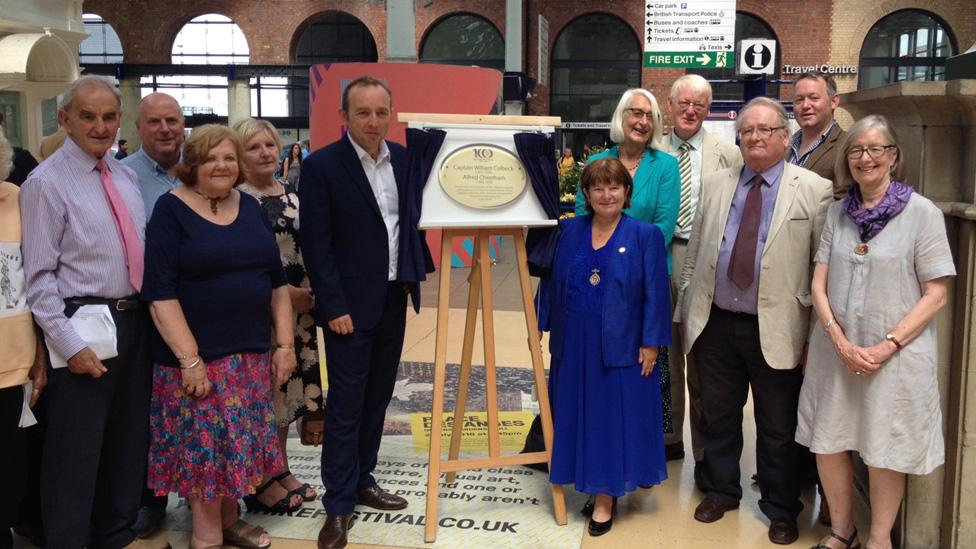Plaque for Hull man who wanted King Charles I executed
- Published

John Alured was one of 59 signatories on the death warrant of King Charles I
A man who signed the death warrant of Charles I has been remembered in the city that refused entry to the monarch in 1642 sparking the English Civil War.
A plaque to John Alured, who signed the king's death warrant, is to be placed on a wall at the Charterhouse in Hull.
John and his brother Matthew, who was honoured with his own plaque, were prominent parliamentary soldiers who fought against the Royalists.
The cream plaques commemorate both men for their contribution to the city.
Live updates and more stories from East Yorkshire
Robb Robinson, a historian, said: "The plaques reinforce the role and notion of freedom that has always underpinned Hull's story.
"The Alureds are part and parcel of its history however brutal."
John Alured died in 1651 at the age of 44 but younger brother Matthew (1615-1694) went on to see much of the 17th Century struggle between the monarch and parliament.
He lived through the civil war, the restoration of the monarchy in 1660 and the Glorious Revolution of 1688.

Charles I was monarch from 1625 until his execution in 1649
The parchment document bearing the king's death warrant, external has 59 signatories or regicides and is still held in parliament.
Alongside John Alured's signature was a second Hull regicide, Perigrine Pelham, who has a plaque in Hull Truck Theatre.
The monarch went on trial in the House of Commons and was executed on 30 January 1649 in Whitehall.

The men are to be remembered by plaques on the Charterhouse in Hull
The Charterhouse stand on lands near to where the Alured family owned land.
Less than a mile away are the remains of the Beverley Gate where the King was refused entry to Hull in April 1642 by the governor Sir John Hotham.
Mr Robinson said further civil war plaques are planned for Hotham and Major-General Robert Overton.
The plaques are some of the 100 placed around the city during UK City of Culture 2017.
- Published13 January 2017

- Published21 January 2016
